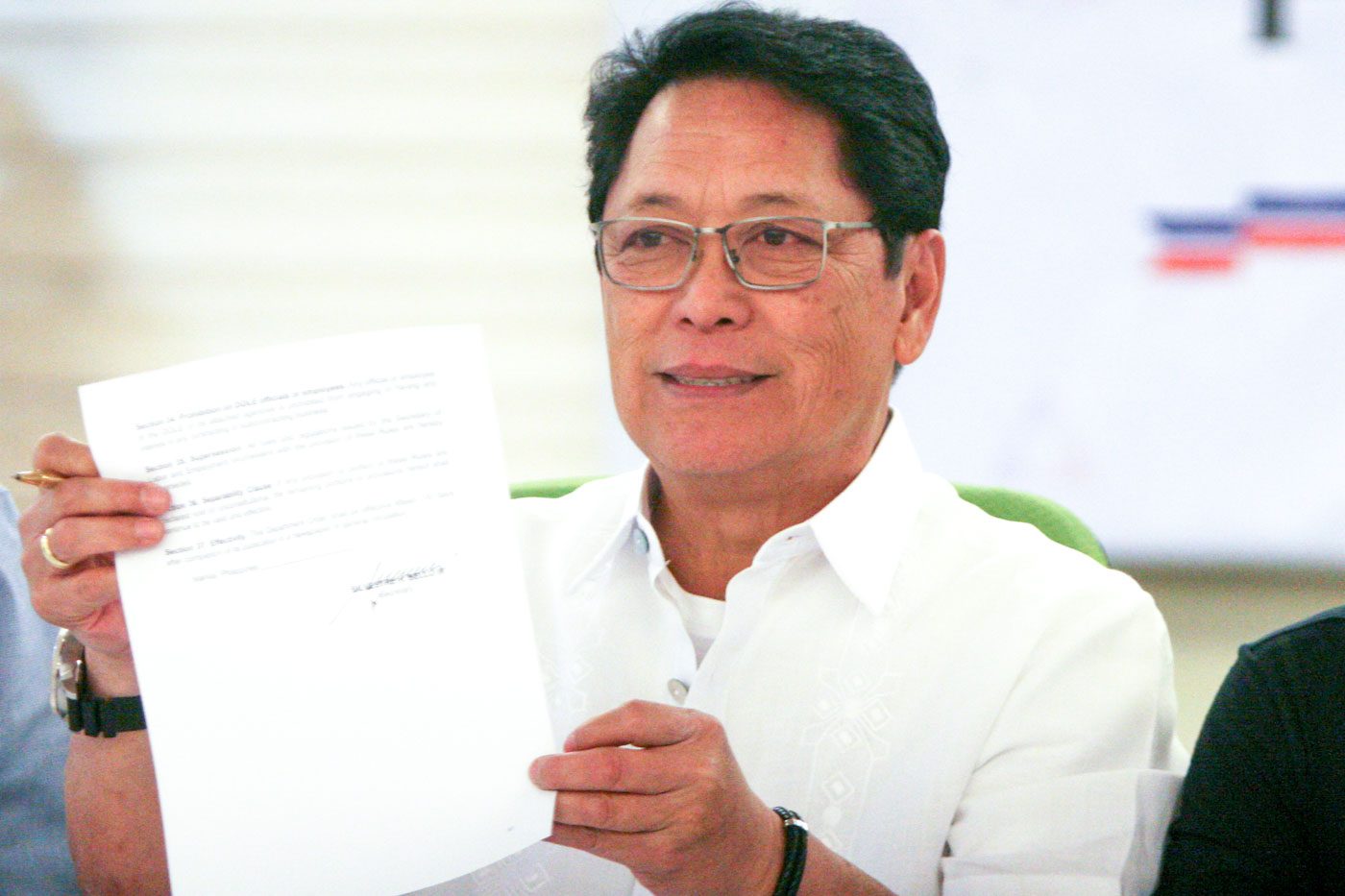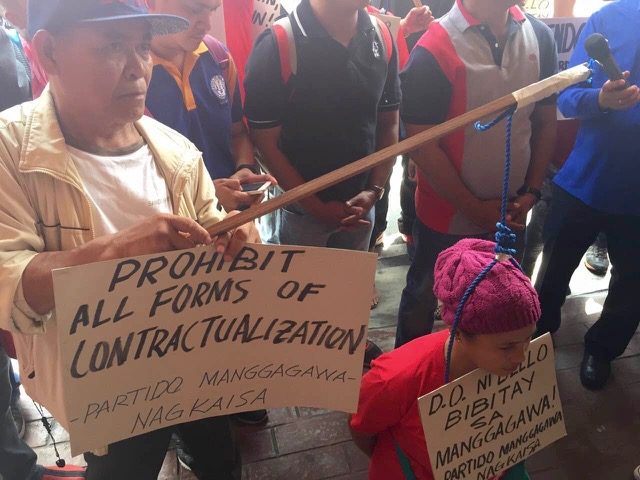SUMMARY
This is AI generated summarization, which may have errors. For context, always refer to the full article.

MANILA, Philippines – Department of Labor and Employment (DOLE) Secretary Silvestre Bello III on Thursday, March 16, signed a new order that sets stricter guidelines for contractualization, but still left labor groups dismayed as they want all forms of contractualization banned.
Through Department Order (DO) No. 174, series of 2017, the DOLE stressed that labor-only contracting or the practice where the agency “merely recruits or supplies workers to perform a job or work” for an employer is the form of contracting that is prohibited. In labor-only contracting, the agency “does not have substantial capital or investment which relates to the job, work or service to be performed.”
DO 174 supersedes DO 18, which contained the original guidelines on contracting and subcontracting.
To limit scrupulous labor agencies, the new order increases the substantial capital requirement of manpower agencies to P5 million from P300,000. The DOLE also shortened the validity of the certificate of registration of contractors from 3 to 2 years and the registration fee was also increased from P25,000 to P100,000.
“Endo” or the “end of contract” scheme is also restricted by the new DO, as it prohibits the continuous hiring of a manpower agency (contractor / subcontractor) of a worker under a repeated contract of short duration.
Other prohibitions set by the new directive are:
- farming out of work through a “cabo” or a labor group disguised as a labor organization or a cooperative
- contracting work from an in-house agency or an in-house cooperative
- contracting work due to a strike or lockout
- contracting work performed by union leaders to ensure employees’ rights to self-organization
- requiring agency-hired employees to perform jobs that are being done by regular employees of the principal company
- requiring employees to sign a contract with a term shorter than the agency’s contract period with the principal company
But despite the release of tougher guidelines, Bello said the key to limiting illegal contractualization is through strict monitoring and implementation of the DO.
He has directed undersecretaries Joel Maglungsod and Bernard Olalia to review the enforcement framework of the labor standards.
Bello also said he requested supplemental budget for an additional 200 labor inspectors. Currently, there are only 535 labor law compliance inspectors monitoring 950,000 business establishments. Labor leaders will also be deputized by the department to act as labor compliance inspectors.
“We have talked to the labor groups and they are willing. What we have to talk about is we will deputize them but we will not pay them, like they will be rendering free work, voluntary,” he said.
The release of the order came after a series of talks with labor and management groups. This order was originally set for release in December 2016.
‘Bello resign’
Labor coalition Nagkaisa, however, said it will urge President Rodrigo Duterte to fire Bello because the DO does not abide by the marching orders of the President.

“Ito ay malinaw na kaso ng insubordination at tiyak na mananawagan ang aming conveneros kay Pangulong Duterte na i-fire si Bello as Department of Labor Secretary,” said coalition spokesperson Rene Magtubo.
(This is a clear case of insubordination and for sure, our convenors will ask President Duterte to fire Bello as Department of Labor Secretary.)
“After all, what we need is a labor secretary who will fulfill his task to protect the rights of workers. A full-time secretary of labor who will protect the interest of the workers,” he added in Filipino.
Aside from heading the DOLE, Bello is also the chairperson of the government peace panel negotiating an agreement with the National Democratic Front (NDF).
Bello, however, maintained that the order is well within the marching orders of the President. (READ: No ‘endo’ in 2017? Challenge of ending labor contractualization)
“What he wants is to prohibit illegal manning agencies,” said the labor secretary, adding that the Labor Code of the Philippines, under Articles 106-109, allows companies to contract out labor.
“Prohibition of all forms of contractualization is beyond the powers of the secretary of labor. DOLE can only regulate contracting and subcontracting,” he also explained.
Bello pointed out that for labor contractualization to be completely banned, Congress would need to amend laws.
Bills proposing security of tenure for workers have been filed in both the Senate and the House of Representatives. During the February 27 meeting with labor groups, Bello said Duterte agreed to certify as urgent the measures against contractualization. – Rappler.com
Add a comment
How does this make you feel?
There are no comments yet. Add your comment to start the conversation.